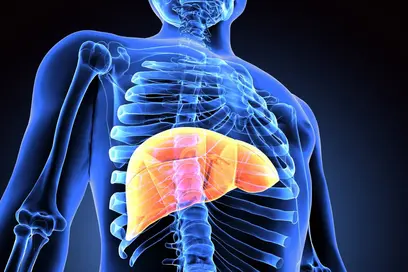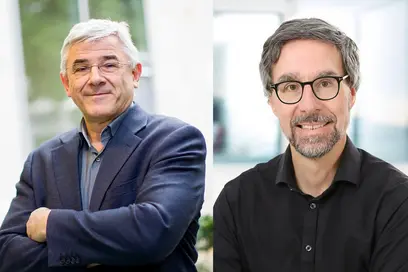The two-part prize will be awarded on October 31 at the 3rd German Cancer Research Congress. The main prize is awarded to Rita Schmutzler from the University Hospital of Cologne, an internationally recognized pioneer in risk-adapted prevention of breast and ovarian cancer. The Young Investigator Award goes to Jens Puschhof of DKFZ for his discovery of how certain bacteria promote colorectal cancer - a finding that opens up new possibilities for prevention.
Experts agree that a sustainable decline in cancer numbers can only be achieved if the great potential of cancer prevention is better exploited. According to current knowledge, primary prevention and early detection together can reduce cancer mortality by up to 70 percent.
However, many questions about cancer prevention still await answers. For example, little research has been done on whether the molecular processes that cause cells to become cancerous can be stopped with vaccinations or drugs. It is also largely unknown which genetic or familial risk constellations require adapted screening regimens, or how screening programs need to be designed to gain widespread acceptance.
“Research projects dedicated to cancer prevention issues are underrepresented and underfunded within cancer research. They are often not very attractive to young scientists, because successes of cancer prevention programs can usually only be seen in statistics years or even decades after their introduction,“ says Michael Baumann, Director of the German Cancer Research Center. “We thank Manfred Lautenschläger and his foundation for enabling us to award this prestigious prize, which we hope will provide an incentive for scientists to engage in this life-saving field of research.“
“The prize is a recognition for excellent scientists whose research helps to ensure that fewer people develop cancer or succumb to the disease because it was discovered too late,“ says Manfred Lautenschläger, founder and Honorary Chairman of the Supervisory Board of MLP SE. The German Prize for Cancer Prevention Research is awarded every two years. The prize is divided into two parts. The winners were selected by a high-ranking international jury.
The main prize, endowed with 25,000 euros, is aimed at excellent, established researchers; the young scientists' prize, endowed with 5,000 euros, is intended as an incentive for young scientists. This year's main prize for cancer prevention research goes to gynecologist Rita Schmutzler from the University Hospital of Cologne. She is an internationally recognized pioneer in the risk-adapted prevention of breast and ovarian cancer. The aim of her research is to unravel the genetic causes of the predisposition and to offer risk-adapted prevention programs to affected women in order to either prevent the onset of the disease or to detect it early enough to make it curable.
Rita Schmutzler initiated and led numerous research projects to identify breast cancer risk genes. She has been a major contributor to ensuring that risk-adapted early cancer detection in the field of gynecology in Germany can build on a precise scientific foundation. From 2005, she coordinated the Familial Breast and Ovarian Cancer Consortium, a network that now involves 23 university centers. In this role, Rita Schmutzler works tirelessly to ensure that the latest findings in genomic medicine are incorporated into the clinical care of patients. It is thanks to her commitment that risk-adapted prevention of gynecological tumors is now firmly established in Germany and is financed by the statutory health insurance funds.
After medical studies and residency in Bonn as well as two research fellowships in the USA, Rita Schmutzler took over the establishment and management of the Center for Familial Breast and Ovarian Cancer at the Bonn Women's Hospital in 1994. She has been a university professor at the University of Cologne since 2003 and has been director of the Center for Familial Breast and Ovarian Cancer there since 2012.




